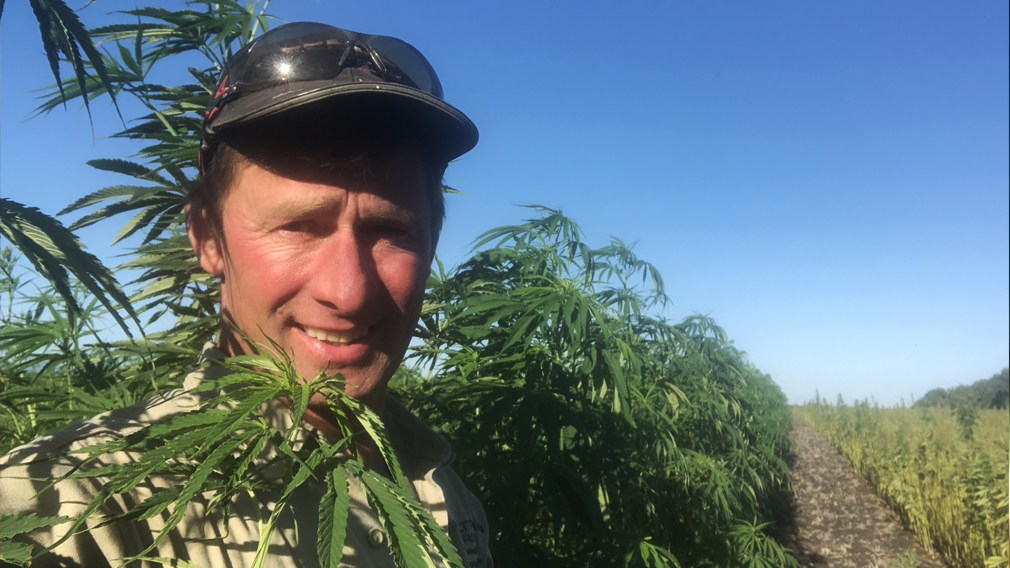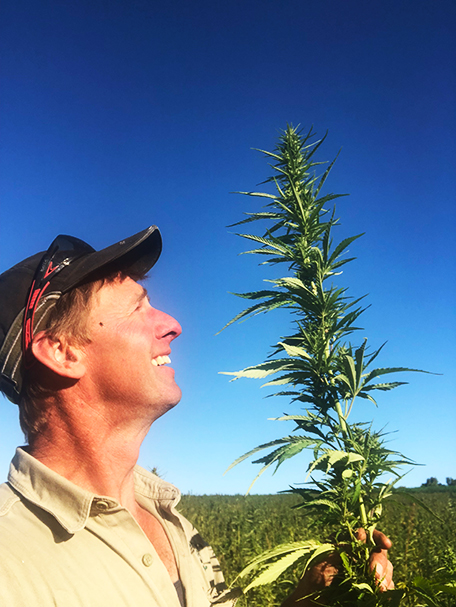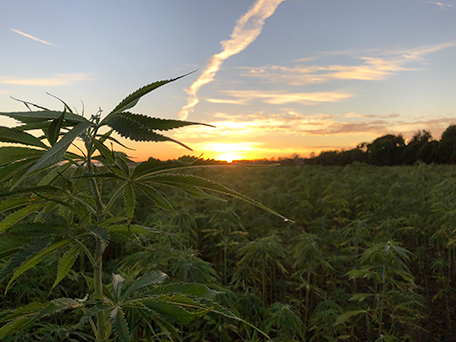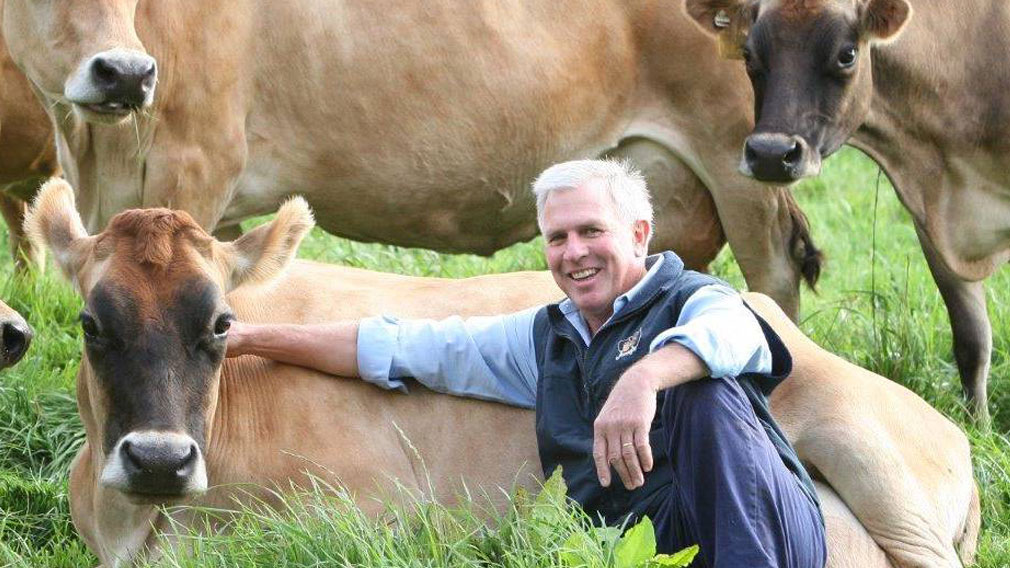The appetising edible hemp opportunity

Fifth generation farmer Michael Nagorcka plans to increase hemp production ten-fold next year to meet soaring demand. (Supplied)
Farmer Michael Nagorcka is no stranger to adapting to the times.
A descendant of innovative relatives who started as fine wool growers in the 1880s before pivoting into cropping and meat production through much of the 1900s, Nagorcka’s father James turned the family’s Victorian-based Waltanna Farms towards manufacturing farm machinery.
By the 1980s, Waltanna was a global name making parts used in large four wheel drive tractors, working alongside multinational agricultural machinery companies such as John Deere, Caterpillar and Case New Holland.
But these days, Nagorcka is more likely turning his mind to the latest sales of hemp biscuits than tractors.
“We’ve got muffins and biscuits in huge demand,” the fifth generation owner and director excitedly says, referring to the ready to eat food range created by Waltanna in collaboration with Lyndoch Living. “They’ve got hemp in them, flax, a heap of protein and fibre, they’re gluten free, and they’re to die for. They give you an unrivalled superfood with omega 3, 6 and 9 that you can have with a cup of tea.”
Unlike marijuana, hemp – also a species of cannabis – is specially cultivated to have negligible levels of the mind-altering chemical compound tetrahydrocannabinol, or THC. Hemp has been farmed around the world for centuries and commercially available to eat for decades in many countries such as the US, Canada, UK and in Europe, creating a global market projected to reach $US10.6 billion by 2025.
In Australia, the sale of edible hemp was legalised in November 2017 and, although the industry is still in its infancy, hemp is already on the shelves of major supermarkets as oils, flours and powders, often sprinkled on breakfast cereal, mixed into smoothies or brewed into beer and milk.
“It’s just phenomenal how much is on order,” Nagorcka says. “Anything I can grow at the moment is presold. Demand way outstrips supply, and will for some time.”

Michael Nagorcka among hemp crops at Waltanna Farm. (Supplied)
The emergence of the edible hemp market in Australia has coincided with broader excitement around medicinal cannabis after it was legalised for patients with specific medical conditions, inspiring a rush of operators eyeing and undertaking stockmarket listings.
But Nagorcka says his interest in hemp will remain focused on “the food side”, despite projections the medicinal cannabis market will grow to a multi-billion dollar industry in Australia within a decade.
“As far as I'm concerned there’s too much investment in the medicinal side,” he says. “Someone's going to lose out somewhere, with the amount of shares that have been sold and the companies that are floating. There's only so much medicinal hemp that’s going to be sold in this country.”
Nagorcka, who attained a licence to grow hemp in advance of its legalisation and trialled plots of different varieties, says he got a bit of a jump on the market after a “brilliant” first crop last year.
In this year’s first full year of production, Waltanna – which has grown to 3200 acres – is expected to produce around 300 to 400 tonnes of hemp, an amount expected to increase “tenfold” next year driven by the growing appreciation of its health benefits as a rich source of essential omega-3 fatty acids and protein.
It continues a change for Waltanna since its focus on manufacturing under Nagorcka’s father James, who still consults to the business.
“He couldn't buy what he really required so he set about building his own tractor,” Nagorcka explains of the manufacturing operations in the 1980s.
“Although we were very small, we were world leaders in a number of different areas of concept design engineering, such as the production of rubber tracks used in high speed tractors. A lot of the technology we made is still being used on new release machines today.”
But by the late 1990s, as large scale manufacturing became less economically viable and inspired by a trend he’d observed while travelling overseas, Nagorcka made the next big shift for the farm: organic crops. His initial paddock of flax was one of the first to be certified organic in Victoria, at a time when there was little local demand.
“We were known back then as being very alternate, even ‘greenies’. We were called ‘tree huggers’ by our neighbouring farmers. What we were doing was not normal,” recalls Nagorcka.
Undeterred, he made a decision to convert 75 per cent of the farm into organic operations and, at the same time turned his hand to processing, buying and building oil presses and milling equipment.
His hunch paid off. Today Waltanna is one of Australia's largest co-operative growers and processors of organic flax in Australia, and processes approximately 1500 tonnes of both certified organic oats and wheat annually.

Hemp crops at Waltanna Farms. (Supplied)
Nagorcka says 18 years of expertise in growing and processing organics put Waltanna in a prime position to jump on the legalisation of industrial hemp, although it’s a market with unique challenges in both how it’s grown and policed.
“Hemp is not like oats and wheat to grow. It needs a specific climate, there's a lot of timing in it, soil preparation and rainfall, coupled by daylight length. We've managed to get those things down pat in a very short period of time,” he says.
“There are also a lot of policing checks, an enormous amount of paperwork, the THC levels need to be regularly monitored, and there are different levels in different states.”
Looking ahead, Nagorcka is firmly eyeing his next project to significantly expand Waltanna’s third-party processing capacity ten-fold to 6500 square meters and lift the volume of commodities processed, a service for which he says there is much demand.
“We'll be processing hemp, flax, sunflower seeds, pumpkin seeds, quinoa, chia from all over Australia. Even though we do bottling and packaging now, the scale of that will grow tenfold, using all automated machinery for both wet and dry packaging,” he says.
“Any farm in this country will only survive through innovation or value adding. The days are gone where you just simply grow a crop and take it into the pool. The returns are simply not there.”


